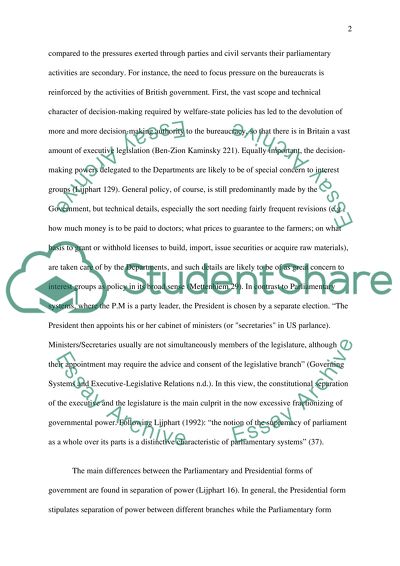Cite this document
(“Compare the parliamentary and presidential forms of government. What Essay”, n.d.)
Retrieved from https://studentshare.org/miscellaneous/1509907-compare-the-parliamentary-and-presidential-forms-of-government-what-are-the-strengths-and-weakness-of-each
Retrieved from https://studentshare.org/miscellaneous/1509907-compare-the-parliamentary-and-presidential-forms-of-government-what-are-the-strengths-and-weakness-of-each
(Compare the Parliamentary and Presidential Forms of Government. What Essay)
https://studentshare.org/miscellaneous/1509907-compare-the-parliamentary-and-presidential-forms-of-government-what-are-the-strengths-and-weakness-of-each.
https://studentshare.org/miscellaneous/1509907-compare-the-parliamentary-and-presidential-forms-of-government-what-are-the-strengths-and-weakness-of-each.
“Compare the Parliamentary and Presidential Forms of Government. What Essay”, n.d. https://studentshare.org/miscellaneous/1509907-compare-the-parliamentary-and-presidential-forms-of-government-what-are-the-strengths-and-weakness-of-each.


